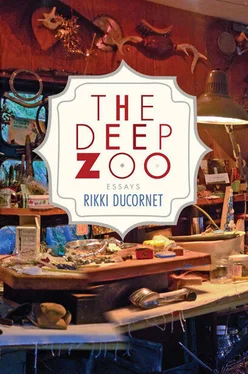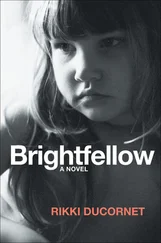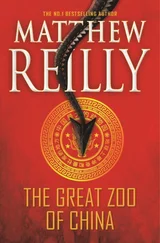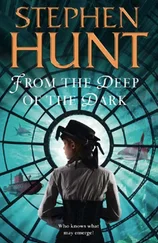I’ve been to Bur Sa’id,
Sh  b
b  zpur and Hooghly,
zpur and Hooghly,
Crooked Island, Easter Island;
I’ve been to Corpus Christi.
I wished to evoke the bubbly turbulence in the wake of a boat pulled along by a good wind.
And the novel is punctuated by the water’s meteoric forms (and this is a term taken from the period I evoke in the book’s early stages): sleet, snow, hail, rain, and drizzle — all powers, here consciously associated in order to suggest the many moods of the sea. What follows intends to evoke both a needling rain and the heave of heavy weather: “Saturday and pissing vinegar. The old port has vanished in the rain; port and sky and sea all smeared together like a jam of oysters, pearl-grey and viscous.”
I made lists that I no longer have, but looking into the novel’s opening pages I find: sea, firewater, whisky, rum; ocean, sea-talkers, sailors, mermen; moonshine, shellback, dancing ships; fish, mists, listing ships; foam, sea wolf, jellyfish; flood-lands, liquid amber, tears; starboard, sea worm, milky haze; hail, surf, tidewater, rain; sops, floating island, sponge, splashing, drifting. .
And I imagined a book bathed in light, light a sensuous medium that, like water, seeps into every crack. Chapters three and four take place in an underwater haze.

The idea that the music of the text would evoke waters of various kinds, was the only imposition I engaged; beyond that, as with all my books, the novel was expected to reveal itself. The characters dropped in and decided the direction the book — their book — would take. As did the unexpected collisions of words. The novel’s intention evolved from within; the entire process had a weather of its own.
Bachelard says, “And the words wander away looking in the nooks and crannies of vocabulary for new company, bad company.” Such bad company is scary and exhilarating, above all subversive — as it forces the writer to question her presumptions and keeps her on her toes.

I think of a novel as an unfolding landscape, an entire country waiting to be deciphered. I have always leaned into new places, tugged along by curiosity and an expanding waking dream. How I travel is how I write my books. It is enough to have a dream for a guide, an intuition, an element. “How can one not dream while writing?” Bachelard asks. “It is the pen that dreams.”
Finally, writing is a species of practical magic. Like sugar in water, the words one employs must dissolve and altogether vanish.
9/11 was an act of folly, but madness — and the ancients knew this — serves to disclose what has been hidden and needs to be revealed. It was not an act of isolated folly; Bin Laden is said to have hated the United States from the moment when, as a boy, he learned of Hiroshima. Yet in his address to Congress, George W. Bush stated, “They hate our freedoms”—a phrase that sought to explain everything and was readily embraced by the government, the public, and the press. I propose that 9/11’s failure to initiate a national inquiry and debate about our foreign — and for that matter domestic — policy is rooted not only in our profound sense of entitlement and, until then, a belief in a God-given invincibility, but racism and sexual anger. Born of genocide and slavery, our democracy staggers beneath a failure to acknowledge and address its own defining brutal impulse. In fact, we had long betrayed freedom’s marvelous promise, and have, perhaps irretrievably, contaminated that promise. In other words, we were not betrayed by Bush, but already complicit in his lies. The questions that needed to be asked were voiced by only a few, who were tagged as neurotic and unpatriotic, and ignored.
In the same speech, Bush assured the American people that “this will not be an age of terror.” Yet our government’s response was to set a city on fire, and within weeks, survivors of “shock and awe,” children among them, were rounded up in the streets and taken to Abu Ghraib — a mirror of our own prisons in which sexual abuse is rampant. Currently, our prison population exceeds two million; 60 percent of those prisoners are racial and ethnic minorities. I would suggest that ours is a democracy undone by a chronic fear and loathing of the body, our own bodies and the bodies of strangers; perhaps it could be said that the body in our land is always a stranger, a sentiment evident in our irrational terror of health care, our willingness to allow the food industry to poison us, our fear of a woman’s right to choose, gay rights, and so on — tendencies now acutely heightened with the success of the sanctimonious Tea Party and the far right’s inability to accept the legitimacy of a black president.
Eros was brought down in Baghdad — Eros in its many forms: the gardens, the museums, a library reduced to ashes. Among so much lost to us forever were tablets many thousands of years old, unexamined, belonging to that most ancient of stories: The Epic of Gilgamesh, a story in which our own cultural heritage, including the Bible, is rooted. I suggest a pattern here: hating and fearing the body, we turn away from knowledge of the other. If we destroy the evidence of our culture’s roots in Mesopotamia, then we stand alone, unique, born fully formed of a god, chosen and invincible. Or maybe not. The destruction of Baghdad’s library was the cultural equivalent of destroying the fossil evidence of evolution.
Currently, ours is a nightmarish land, both fearful of all it does not know and proud of this ignorance. Too many of us believe in miracles but not in evolution or global warming, the Second Coming but not social justice. We need to understand why.
The Egyptian Portal: The Art of Linda Okazaki
Every particle of love any sprig of an herb
speaks of water.
Follow the tributaries.
Everything we say has water in it.
— RUMI
In her magnificent Metamorphosis and Identity, Caroline Bynum examines the word mixto, “A key term for ontological psychological and spiritual combination. . A mixtura,” she continues, “is a monster (monstrum), a boundary category violation. . and can be marvelous or miraculous. . Mixturas are objects of stupor or admiration, unusual occurrences at which we feel terror or wonder.” 1

It has long seemed to me that the betrayed child who has had the strength to overcome trauma (a favorite theme of the fairy tale) may become something of a mixto; a violator of boundaries, an artist and a visionary. Trauma leads to a certain distancing from the world and, paradoxically, a novel and even essential revisioning of the world — and so reveals a portal of a kind. If Kaspar Hauser, for example, was seen as a stupefying and admirable object himself — given his extraordinary ability to reclaim an identity after a twelve-year entombment in a stone dungeon — he managed, along with so much else in his short, ill-fated life, to produce visionary paintings in which the world of simple things is imbued with radiance. In one, an archetypal sprig muscles upward. It is the image of a sprig of iron that barred Kaspar’s small window. If the window offered a glimpse of a stone wall, sun and moonlight surely mattered immensely, as well as the passage of an occasional butterfly or bird — although such sightings may have caused him too much pain to be sustained. For company Kaspar had three wooden toys — two horses, a dog, and red ribbons with which to adorn them. A pitcher of water — and there was never enough water — and a loaf of brown bread appeared when he slept — and he slept a great deal — as if magically. Kaspar was imprisoned at the age of four and chained to the floor. He was released twelve years later.
Читать дальше

 b
b 












